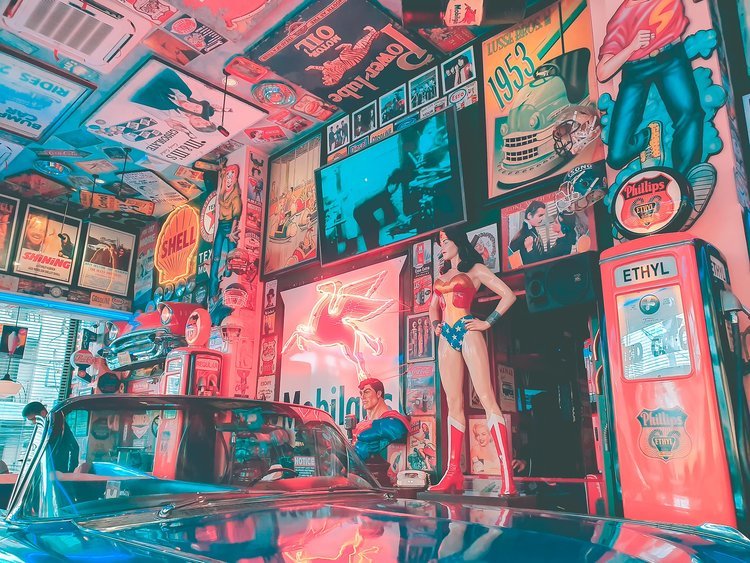Barrelhouse Presents My Weird Pandemic Obsession: Knitting Lips, by Tara Campbell
At the end of April, I stumbled upon fiber artist Yrúarí’s fanciful work reclaiming old sweaters with audacious red lips sprouting out from everywhere and pointed tongues snaking beyond imagination.
Barrelhouse Reviews: Felon, by Reginald Dwayne Betts
I sit here today, looking at my worn copy of Felon, and feel sad, again. Not for the coffee-stained cover – a sadness intimate to me – but because less than four months ago, things were different.
Barrelhouse Reviews: Twelve, by Andrea Blythe
Twelve is, at its core, a story of women choosing.
Barrelhouse Reviews: That Time of Year, by Marie Ndiaye
What becomes of us, NDiaye seems to ask, when we have no choice but to look below the surface?
We Know This Will All Disappear: An Interview with Melissa Ragsly
We Know This Will All Disappear: An Interview with Melissa Ragsly
Barrelhouse Reviews: Anthropica, by David Hollander
It is by way of the voices of this band of dejected antiheroes that Anthropica poses an alarming and timely question: With all we have, why are we still so unhappy?
Kicking Off the Fall Season: Sian Griffiths and Katherine Hill Talk About Their Football Novels
Kicking Off the Fall Season: Siân Griffiths and Katherine Hill Talk About Their Football Novels
Barrelhouse Reviews: Half, by Sharon Harrigan
The we voice, that stubborn collective, merges the two women and takes the reader through two lives lived as one.
Barrelhouse Reviews: Like a Bird, by Fariha Roisin
Every trauma survivor must become an autodidact of their own pain. By telling Taylia’s whole truth in Like a Bird, rather than flattening her into a more marketable heroine, Róisín locates Taylia’s experience within the body rather than as a response to the catalytic forces of plot.
Mostly Human, Most of the Time: Barrelhousing with Sheila Squillante
Sheila Squillante’s Mostly Human, winner of the 2020 Wicked Woman Prize from Brickhouse Books, is a different kind of poetry collection. In this interview, Barrelhouse sat down to talk with Sheila about Mostly Human, the Eighties, and her process in writing these wonderfully unique poems.
Drinking in Parking Lots, by Aaron Burch
She liked drinking in parking lots, that was my favorite thing about her. We’d go to the liquor store and buy a case of beer, or a fifth of whiskey, or a bottle of wine, or a box of wine, or sometimes even champagne, or other times a random assortment of those small, single-serving, airport-sized bottles of whatever they kept at the counter.
Best Features, by Roxane Gay
Marcy is fat and ugly but she gives good head so she rarely sleeps alone which is not to say she’s not lonely. Marcy is not, in fact, ugly, but she might as well be.
Punch Out, by Brian Oliu
Come in close and I will teach you a lesson. You will fall down. They will swing-shoulder to arm to hand, and it will strike you on the cheek. Your neck will spin backwards like the woman’s hair in the second row. Get up. They will blink. Their eye might sparkle. They might open their mouth.
Once There was a Woman in a Car, by Jyotsna Sreenivasan
Gray freeways swoop and spiral above her, with blue sky sometimes peeking through. The roadway loops below her, with green grass and parking lots sometimes visible. She drives in arcs, down and around and up and around. Her rental car accelerates powerfully, smoothly, and smells of upholstery cleaner and stale cigarette smoke.
August 2010: A Reading, by David Holub
Wow. Thanks for having me. And sorry about the shorts. I didn’t realize the other readers would be dressed so nicely. And thank you, JoAnn, for that essay about your kid. Kids do say the darnedest things. Keep sending it out. Editors are bastards.
Arthur’s Theme (Best That You Can Do) Unabridged, by Patrick Crerand
In the summer of 1972, after weeks of consuming only avocado fuzz and free coffee from a local Midas Muffler Shoppe, a gifted oracle named Arthur emerged from his tent to impart the following vision to his neighbor, a burgeoning young crooner with the voice of an incandescent castrati: “If you get caught between the moon and New York City, the best that you can do is fall in love.”
Attention, by Akshay Ahuja
A substitute walked into our 6th grade math class. He was thin and old and wearing a black suit. A frayed cuff appeared from under his sleeve as he tapped out a name full of Ys and Zs on the board. In a measured voice, he read out the instructions from our teacher. “There is a work sheet,” he said. “You can complete for homework if you do not finish today.”
Guerrilla Warfare, by Brooks Sterritt
Bill was fired for killing too many flies in front of the customers. He folded his apron, black, with the coffee shop’s cutesy, punned name on the front, into a small square — to save face. Jimmy, the boss who was three years older than Bill and stupider, took the apron from his hand and shook it like something dirty, unfolding it. He followed Bill back inside the store, holding the black cloth and smirking.
On Tubes, by Ted Stevens; by Bryan Furuness
Sex is a series of tubes. One tube going into another, that’s all it is when you get right down to it. The electrical grid, sewage system, subways, phone lines, hell, more than half the infrastructure of this thankless nation: tubes.











